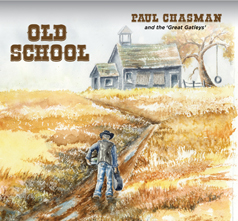Guitar Limitations - December 15, 1998
 Dear
Readers, Dear
Readers,
Something I love about the guitar is its set of limitations. I believe that harmonically and rhythmically, the guitar is the most versatile instrument after the piano, but oh, what a difference. When I am composing or arranging an orchestral style piece, what I would give sometimes to have eighty-eight notes! I often long for ten fingers to play ten different notes, rather than four fingers and a thumb. What I could do if I had two hands to play two entirely independent, complex rhythms! But it is those very limitations that can lead to some creative music making and resourceful problem solving. I cannot tell you how many times I've come up with a great idea that I never would have thought of if I weren't forced to accomodate my instrument. For example, with my harmonics technique, I often "bury" normally plucked notes within a passage of harmonics, a sleight of hand which creates the illusion that all the notes are played as harmonics. In order to do this, I must overemphasize the harmonics and deemphasize the conventional notes. Often the harmonics come in a part that should be deemphasized and the conventional notes fall in a part I would normally emphasize. So, I wind up accenting and sustaining notes I would never dream of accenting and sustaining if I weren't forced to, in order to get the effect I desire. This leads to some very interesting and unconventional sounds that please me. The guitarist constantly nips and tucks. Sometimes I play a different voicing than I would if I had my choice (sorry, but I just can't seem to reach that low F at the first fret when I'm playing the high F at the 13th). If I'm forced to play the bass an octave higher, I may create a more intimate atmosphere than the original conception. Or I may have to become inventive with my fingering by putting a higher note on a lower string (Ex: C# on the G string against an open B). The guitar demands that we be subtle. We are often required to imply our idea rather than play it literally. The ways we choose to state or imply, the factors we choose to emphasize or deemphasize, the ways we work around the unique blind spots of the guitar can lead to all kinds of fascinating and sometimes quirky styles. Which leads me to make my case for the guitar's versatility. I don't know of another instrument that has as broad a range of tonal colors as the guitar does. I don't know of another instrument that spans such range from human voice to otherworldly. And I certainly know of no other instrument than the guitar that can boast such a wide range of virtuosos. What other instrument covers the spectrum from Joseph Spence to Andres Segovia? John Hurt to John McGlaughlin? George Van Eps to Eddie Van Halen? If you listen to 100 great guitar players, you will hear 100 different ways to play. The guitar is a great frontier for the stubborn individual. Each player must find his or her own unique method of solving that wonderful and confounding contradiction between the guitar's infinite possibilities and challenging limitations. Talk to you soon. (December 15, 1998) BACK TO ARCHIVES |

